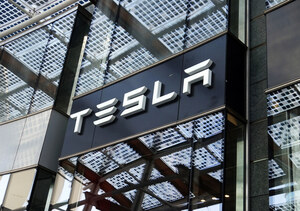 According to the lawsuit, Tesla’s standard operating procedures include blatant, open and unmitigated race discrimination, racial and sexual harassment, and retaliation. Despite the company’s knowledge of the harassment and/or discrimination, and despite a high-profile settlement in 2022 (a jury awarded a Tesla employee $130 million in damages, which a federal judge reduced to approximately $15 million), “defendants have done little to nothing to reasonably prevent or stop this toxic behavior and work environment” and it continues to be a racially hostile workplace. The lawsuit further states that the largest and highest-profile electric car company in the world have affirmatively obstructed attempts to remedy the harassment which is rampant in Tesla’s factories.
According to the lawsuit, Tesla’s standard operating procedures include blatant, open and unmitigated race discrimination, racial and sexual harassment, and retaliation. Despite the company’s knowledge of the harassment and/or discrimination, and despite a high-profile settlement in 2022 (a jury awarded a Tesla employee $130 million in damages, which a federal judge reduced to approximately $15 million), “defendants have done little to nothing to reasonably prevent or stop this toxic behavior and work environment” and it continues to be a racially hostile workplace. The lawsuit further states that the largest and highest-profile electric car company in the world have affirmatively obstructed attempts to remedy the harassment which is rampant in Tesla’s factories.
Racist Slurs
The 14 African-American, Hispanic, and/or Latinx employees have all experienced offensive racist comments and offensive racist behavior and discipline by colleagues, leads, supervisors, managers, and/or Human Resources personnel on a daily basis. For instance, graffiti scrawled throughout the factories, from restrooms to workstations to breakrooms, included racist slurs such as the N-word, N-boy, KKK and swastikas. Apparently, Tesla didn’t remove or address the racial slurs for months.
Plaintiff Marlin Martin, who is Black and still employed at Tesla, said his high blood pressure caused him to collapse at work one day. His managers assumed he was drunk or on drugs and placed Martin on leave pending a "sham drug use investigation" that left him out of work for a month. Martin claims the investigation was motivated by bias.
Brittany Allen, a black woman, said in the lawsuit that a male co-worker took photos of her body at work and started calling her racial slurs. She reported the incident to her supervisor but nothing was done. When Allen asked to leave work early when she got her period, the same supervisor told her she needed to "show him the blood between her thighs," if she wanted to go home. Allen complained to HR about her supervisor’s response but she was fired in June 2023 after failing to provide a doctor's note for missing work.
Retaliation
The lawsuit states that plaintiffs were retaliated against when voicing out and reporting to Tesla’s higher authorities regarding the racial and/or sexual harassment and discrimination they experienced. Retaliation tactics included disciplinary actions, bullying, being transferred to more labor-intense positions, receiving unreasonable write-ups (usually unbeknownst to them), working in an even-more hostile environment, and/or wrongful termination.
Plaintiff Jeremy Keith’s complaints are similar to the 13 other plaintiffs. Keith’s supervisors referred to him as a “good boy” in a demeaning and racially motivated way. But harassment and discrimination complaints to his supervisor fell on deaf ears: nothing was done, and he was forced to continue working with his harasser. Keith, an African-American man, was presumed to be the aggressor by supervisors and managers. For instance, the lawsuit claims that “a female employee suddenly and loudly threatened [Keith’s] wellbeing and job security. Instead of controlling the aggressive employee’s behavior, Keith was disciplined and blamed for being the aggressor.” When Tesla finally looked at the video recordings, however, it revealed that Keith was not the aggressor.
Keith tolerated racial harassment and discrimination and unfair treatment for three years until he went on personal leave and he too was terminated in June 2023.
READ MORE CALIFORNIA LABOR LAW LEGAL NEWS
The case is Keith et al. v. Tesla Inc. et al., case number 24CV080046, in California Superior Court for Alameda County.
